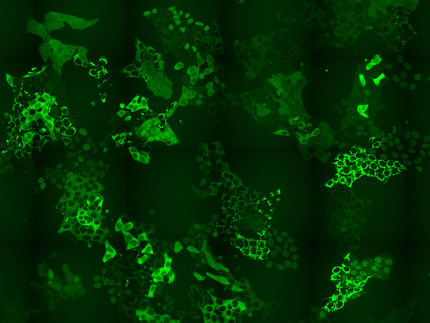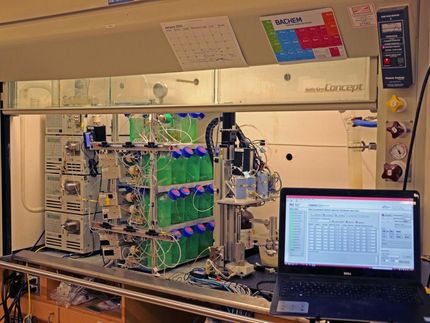The fountain of life: Water droplets hold the secret ingredient for building life
Chemists discover key to early Earth chemistry, which could unlock ways to speed up chemical synthesis for drug discovery
Advertisement
Purdue University chemists have uncovered a mechanism for peptide-forming reactions to occur in water — something that has puzzled scientists for decades.

Symbolic image
Computer generated picture
“This is essentially the chemistry behind the origin of life,” said Graham Cooks, the Henry Bohn Hass Distinguished Professor of Analytical Chemistry in Purdue’s College of Science.“This is the first demonstration that primordial molecules, simple amino acids, spontaneously form peptides, the building blocks of life, in droplets of pure water. This is a dramatic discovery.”
This water-based chemistry, which leads to proteins and so to life on Earth, could also lead to the faster development of drugs to treat humanity’s most debilitating diseases. The team’s discovery was published in the journal Proceedings of the National Academy of Sciences.
For decades scientists have theorized that life on Earth began in the oceans. The chemistry, however, remained an enigma. Raw amino acids — something that meteorites delivered to early Earth daily — can react and latch together to form peptides, the building blocks of proteins and, eventually, life. Puzzlingly, the process requires the loss of a water molecule, which seems highly unlikely in a wet, aqueous or oceanic environment. For life to form, it needed water. But it also needed space away from the water.
Cooks, an expert in mass spectrometry and early Earth chemistry, and his team have uncovered the answer to the riddle: “Water isn’t wet everywhere.” On the margins, where the water droplet meets the atmosphere, incredibly rapid reactions can take place, transforming abiotic amino acids into the building blocks of life. Places where sea spray flies into the air and waves pound the land, or where fresh water burbles down a slope, were fertile landscapes for life’s potential evolution.
The chemists have spent more than 10 years using mass spectrometers to study chemical reactions in droplets containing water.
“The rates of reactions in droplets are anywhere from a hundred to a million times faster than the same chemicals reacting in bulk solution,” Cooks said.
The rates of these reactions make catalysts unnecessary, speeding up the reactions and, in the case of early Earth chemistry, making the evolution of life possible. Understanding how this process works has been the goal of decades of scientific research. The secret of how life arose on Earth can help scientists understand why it happened and inform the search for life on other planets, or even moons.
Understanding how amino acids built themselves up into proteins and, eventually, life-forms revolutionizes scientists’ understanding of chemical synthesis. That same chemistry could now aid synthetic chemists in speeding the reactions critical to discovering and developing new drugs and therapeutic treatments for diseases.
“If you walk through an academic campus at night, the buildings with the lights on are where synthetic chemists are working,” Cooks said. “Their experiments are so slow that they run for days or weeks at a time. This isn’t necessary, and using droplet chemistry, we have built an apparatus, which is being used at Purdue now, to speed up the synthesis of novel chemicals and potential new drugs.”
Original publication
Other news from the department science
Most read news
More news from our other portals
See the theme worlds for related content
Topic World Mass Spectrometry
Mass spectrometry enables us to detect and identify molecules and reveal their structure. Whether in chemistry, biochemistry or forensics - mass spectrometry opens up unexpected insights into the composition of our world. Immerse yourself in the fascinating world of mass spectrometry!

Topic World Mass Spectrometry
Mass spectrometry enables us to detect and identify molecules and reveal their structure. Whether in chemistry, biochemistry or forensics - mass spectrometry opens up unexpected insights into the composition of our world. Immerse yourself in the fascinating world of mass spectrometry!



















































